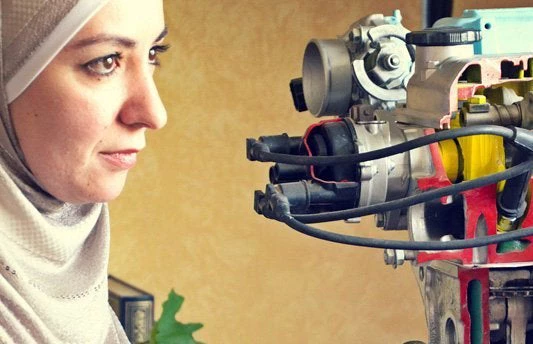
Many countries struggle with creating more and better jobs, especially when they try to increase the number of women in the labor market. Integrating women from more traditional, rural communities is especially difficult. And, if we are talking about a country with the second lowest female labor participation in the world, it might seem like an impossible task. This is exactly the situation that Hashemite Kingdom of Jordan faced a few years ago, and today they provide an interesting example of how innovative policies can address this challenge.
Local women underrepresented in a growing sector
In Jordan, only 14% of women are in the labor market, and job opportunities for them are scarce. An important exception to this rule is the apparel industry, which accounts for 19% of Jordan’s total exports and where women make up 70% of 65,000 workers. But three-quarters of these garment factory jobs are held by migrant workers from South Asia, despite high Jordanian unemployment.
To address high unemployment and limited opportunities for women, starting in 2010 the Jordanian government set a clear goal to increase local female participation in the garment industry. Employers soon understood that they needed to begin employing an increasing percentage of Jordanians as a condition for obtaining migrant work permits. While these initiatives were initially unwritten, as of 2017, the government set formal requirements that each manufacturer employs 30% Jordanians by 2018 and 50% by 2021.
But manufacturers encountered significant barriers integrating Jordanian women, especially since most garment factories are located in Special Economic Zones (SEZs) that local communities consider unsafe for women. Getting to these zones also pose some transportation challenges.
The Government of Jordan and manufacturers got creative and decided to look beyond SEZs. The Government suggested creating “satellite” production units in rural areas to employ Jordanian women with few income opportunities. At its core, the policy is an incentive for manufacturers to open these units: the government partially covers salary and benefits, and offers a bonus towards meeting the local hiring goal.
The government initiatives, which started in 2010 have shown positive results: as of August 2017, approximately 3300 jobs have been created in 12 satellite factories, with a 90% female workforce. Despite initial concern that communities may be resistant to women working in the factories, many factories have waiting lists of women ready to work.
Making satellite factories productive and profitable
While more jobs for rural Jordanian women are now available, the quality and sustainability of these positions remains a challenge. Many employers didn’t initially envision satellite factories as a profit-earning portion of their business, and they only saw it as a corporate social responsibility duty to help them meet the quota for hiring migrant workers. As of 2016, only 4 of the 12 satellite factories were close to breaking even. Now the industry must transition these facilities to being productive entities that offer long-term, sustainable, and decent work opportunities to rural Jordanian women.
With this goal in mind, a new project run by the Better Work partnership between ILO and IFC aims to increase the productivity of the satellite garment factories. The project will offer training and advisory on the technical aspects of manufacturing, as well as soft skills of supervisors and workers, to prove that, with the right conditions, rural Jordanian women can use their skills to increase productivity and generate a profit for manufacturers. Literature shows that both technical knowledge on manufacturing processes and the soft skills of supervisors and workers impact productivity. Better Work’s Supervisory Skills Training, for example, proved to increase productivity up to 22%.
To date, Better Work is piloting the initiative in four satellite factories and will roll out to the rest of satellites starting in November. As the program moves forward and as the number of satellite factories in Jordan increases -four more are slated to open this year alone- this program’s findings will guide manufacturers and the government of Jordan towards creating more productive, sustainable jobs for rural Jordanian women.
The initiative has been made possible through a grant from the World Bank’s Jobs Umbrella Trust Fund, which is supported by the Department for International Development/UK AID, and the Governments of Norway, Germany, Austria, the Austrian Development Agency, and Swedish Development Agency SIDA.
Follow the World Bank Jobs Group on Twitter @wbg_jobs.


Join the Conversation